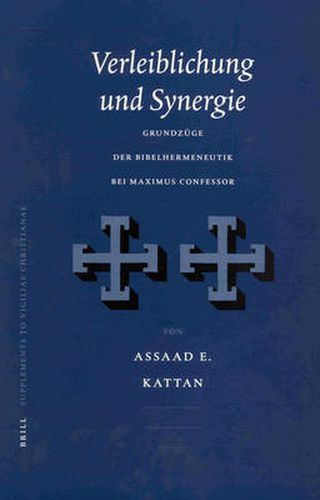Readings Newsletter
Become a Readings Member to make your shopping experience even easier.
Sign in or sign up for free!
You’re not far away from qualifying for FREE standard shipping within Australia
You’ve qualified for FREE standard shipping within Australia
The cart is loading…






This volume examines the biblical hermeneutics of Maximus the Confessor (579/580-662). Although some aspects of the Confessor’s hermeneutical approach had already been tackled, a comprehensive analysis was still missing. Accordingly, this book fills a gap in Patristic studies. The study consists of three chapters. The first one deals with the logoi theory of Maximus being the ontological nucleus around which his whole theological thinking is organized. The second chapter examines Maximus’ understanding of mystical ascension. Equipped with the ontological and mystical foundation, the third chapter analyzes thoroughly the hermeneutics of Maximus as such, attempting to show its coherence and rootedness in the general christological perspective of the Confessor. This book will be of benefit not only for byzantinists and patrologists, but also for biblical scholars interested in the history of hermeneutics and exegesis as well as for historians of philosophy and medieval ideas.
$9.00 standard shipping within Australia
FREE standard shipping within Australia for orders over $100.00
Express & International shipping calculated at checkout
This volume examines the biblical hermeneutics of Maximus the Confessor (579/580-662). Although some aspects of the Confessor’s hermeneutical approach had already been tackled, a comprehensive analysis was still missing. Accordingly, this book fills a gap in Patristic studies. The study consists of three chapters. The first one deals with the logoi theory of Maximus being the ontological nucleus around which his whole theological thinking is organized. The second chapter examines Maximus’ understanding of mystical ascension. Equipped with the ontological and mystical foundation, the third chapter analyzes thoroughly the hermeneutics of Maximus as such, attempting to show its coherence and rootedness in the general christological perspective of the Confessor. This book will be of benefit not only for byzantinists and patrologists, but also for biblical scholars interested in the history of hermeneutics and exegesis as well as for historians of philosophy and medieval ideas.